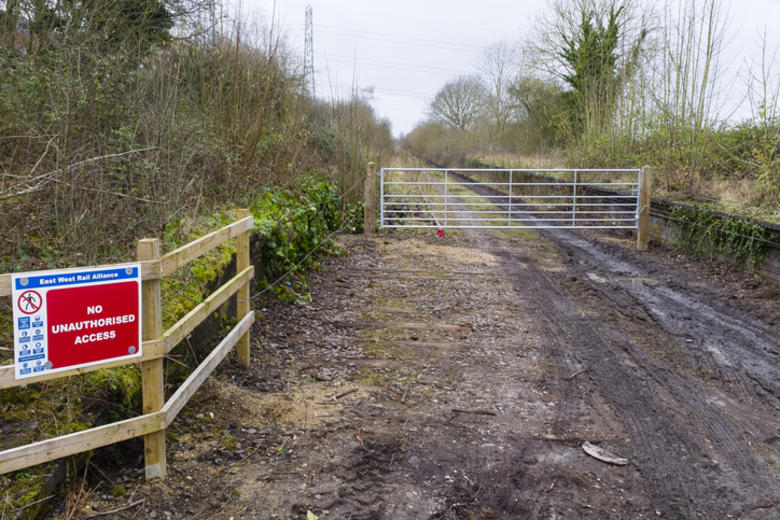OFF THE SHELF: SEPTEMBER 2023

OFF THE SHELF: SEPTEMBER 2023
This month Jack the Ripper revisited, Indian fiction, debut poetry, the history of diamonds, poisonous literature and investment advice.
Published: 4 September 2023
Author: Richard Lofthouse
Share this article
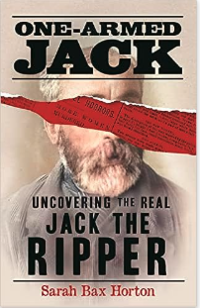
One-Armed Jack: Uncovering the Real Jack the Ripper by Sarah Bax Horton (Michael O’Mara Books, 2023)
This all seems extraordinary. The author Sarah Bax Horton (Somerville, 1987), a former government researcher, took a work sabbatical and promptly discovered that her paternal great-great grandfather Harry Garrett had worked on the Jack the Ripper case. For those of us who are a little hazy, Jack the Ripper was an unidentified serial killer active in and around the impoverished Whitechapel district of London, England, in 1888-90. The district, plus neighbouring Spitalfields, were already notorious for overcrowding and crime, but a series of apparently linked, highly violent murders of women gave the Victorian media a huge story. Anyway, Sarah appears to have solved the century-long mystery by drawing forensically on unpublished evidence and establishing some new connections between the perpetrator and eyewitnesses. A thoroughly readable volume with colour plates and an awful lot of characters, her work appears to have given the whole subject an almighty shove in the direction of final resolution.
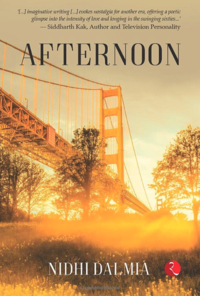
Afternoon by Nidhi Dalmia (Rupa, 2023)
Dr Gun Nidhi Dalmia (Jesus, 1972) launched this, his second book, in May at the residence of the French Ambassador to India, H E Emmanuel Lenain. The moderator, he tells us, was Kabir Bedi of Hollywood and Bollywood fame. Set in the Bay Area, New York, Kashmir, and Delhi in the late 60s, intertwined with the significant cultural, student, sexual, and intellectual revolutions taking place around that time, Afternoon is the story of a young student, Rajiv, finding the love of his life, and two young women whose lives intersect with his at different points of time. The novel echoes that of his first, Harp, which was published to great acclaim in 2016. We liked the review comment of Raghavendra Rathore, which applies equally to both novels, that ‘In today’s age of social media and instant gratification, Afternoon is a pleasant reminder of how humanity thrives on culture, cross-border relationships, and empathy.’ Well, we need more of that in 2023.
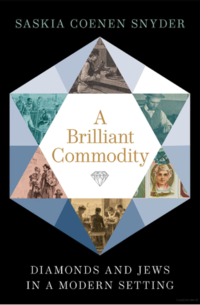
A Brilliant Commodity by Saskia Coenen Snyder (Oxford University Press, 2023)
How and why did Jews come to dominate the diamond trade? The author asks a question that no one else has wanted to tackle, going straight to heart of a million awkward truths including the fact that to a white, Victorian imperial leadership whether British or Dutch/Boer, Jews were white enough to pass, soliciting little to no racism, the opprobrium saved for the blacks of a ‘dark continent’. In fact some white leaders refused to believe that such a ‘white’ stone (meaning the diamond itself, which was 'clear') could even be found in a black continent, even when enormous carat count diamonds had already turned up in London in 1869. This was the start of the big discovery that sparked a frenzy of amateur mining at the intersection of the Vaal and Orange rivers in central South Africa. Saskia tells the story well and you can simply enjoy the book as a scholarly narrative. In 1870, four companies operated approximately 850 steam-powered polishing mills. Less than twenty years later the total comprised 70 companies and 7,500 diamond mills and the basis of a global industry, with a newly-created European and North American retail endpoint. The diamond mines were off-limits to blacks, to the point where the de Beers monopoly later formed the racial basis for apartheid. Come World War Two fully 80% of the Dutch Jewish lapidary trade was liquidated by the Nazis, a completely different chapter in a different ‘empire’ that was racist differently from the Victorian British/Dutch empires. All of this is a corrective and a warning to anyone who wants to simplify the past in all its outrageous contradiction. The author is particularly alive to these subtle nuances of race, noting early on that Jews resisted easy characterisation in the late nineteenth century, ‘they could be both orientalist and orientalized, the colonist and the colonized’. Just to have a whole book delighting in ‘the complexities of the imperial project’ is reason alone to celebrate these days.
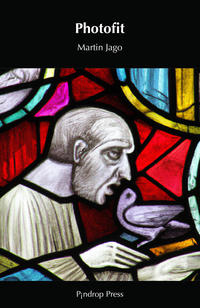
Photofit by Martin Jago, (Pindrop Press, 2023)
Martin (Kellogg, 2014) has a powerfully contemporary idiom and we’re taken with it. This work is his poetic debut and it constructs a fluid to-and-fro between childhood turbulence and adult memory, where identity is shaped and 'No one sees or hears / the crash – its horror unfolding between the front seats / in slow motion...' Along the way, there are ghosts, flashbacks, haunted dreams and vivid imaginings. The poems are dark and there are repeated allusions to death but deeply within and simultaneously at the margin of what is expressed, once in the form of multiple identical footnotes. But it’s lyrically beautiful as well at atmospherically charged, whether in a UK or in a US setting:
Before the 3 am alarm he listens,
her breath playing a duet with freight cars
on a distant railroad bridge, the rats beneath their window reaving the dumpster. Death’s
amber stare gliding in to the hum
of Astro Burger’s neon, blue-note requiem
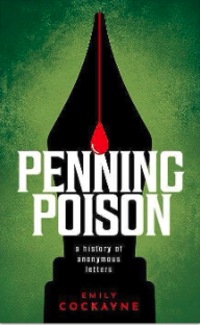
Penning Poison: A History of Anonymous Letters by Emily Cockayne, (Oxford University Press, 2023)
Out later this month, this book will, we predict, be successful because its subject corresponds to our inner sleuth. Accusatory, libellous, or just bizarre, Penning Poison unveils the history of anonymous letter-writing, finding that perhaps the anxieties of our internet age are not as new as we think. Author Emily Cockayne covers the Littlehampton Libels, the subject of the forthcoming film 'Wicked Little Letters' starring Olivia Coleman. More broadly the timeline is 1760 to 1939. Cockayne uncovers scandal, deception, class enmity, personal tragedy, and great loneliness. One predictable takeaway is that social media and our own age is exactly similar, except for the speed and mania attending the digital channels available to us.
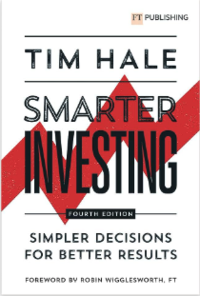
Smarter Investing: Simpler Decisions for Better Results by Tim Hale (4th Edition. FT Business, 2023)
Tim (Lincoln, 1982) has just given his much-followed book a make-over, the 4th edition published in late August. He says, ‘Given the responsibility that most people have today for building and managing investment assets to ensure their long-term financial security, I wrote the book as a guiding framework to help them make both better decisions and to understand some of the behaviours that stop many people from being good investors. I have also included a new chapter on sustainable investing and the challenges it poses in practice.’ He has also commented on cryptocurrencies.
Off the Shelf typically concerns books where there is an Oxford connection, whether the place, the University or of course the author. Our editorial selection rests on books appealing to the broadest alumni audience.
Alumni can claim 15% discount in any Blackwell's store with a My Oxford Card.
Alumni can claim 20% discount at Oxford University Press.
Join the Oxford Alumni Book Club at: www.alumni.ox.ac.uk/book-club
Lead image: Shutterstock




